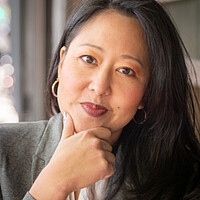Poland appears torn by abortion. Research hints divide isn’t so deep.
Loading...
| Warsaw, Poland
Teresa Barszczowska is a proud Polish conservative, and typically votes her Law and Justice party’s line.
But when it comes to a woman’s right to terminate a pregnancy, she wishes her conservative leaders would have had more empathy.
Why We Wrote This
A story focused onPoland seems like a bitterly divided country, especially over hot-button topics like abortion. But there’s middle ground to be found, thanks to empathy among even the most conservative Poles.
That ability to put oneself in another’s shoes was missing, she says, when her party’s leader imposed a near-total abortion ban in 2020. “He doesn’t have his family of his own; he’s a bachelor. He doesn’t know how it is,” says Ms. Barszczowska, a pensioner. “He really shouldn’t be meddling in these things.”
The issue of abortion has neatly cleaved the Polish political class, yet researchers find that Poles themselves feel much more empathy around it than their elected leaders. And the idea that people hold compassion around many divisive issues presents an opportunity to bridge a societal divide, says researcher Zofia Włodarczyk.
“From all political spectrums, when people talked about abortion or about women who decide to have abortions, they talked with care and empathy,” says Dr. Włodarczyk. “As in, ‘I wouldn’t do it myself, but I understand why someone might.’ And when people have that empathy, it’s easier to find common ground.”
Teresa Barszczowska is a proud Polish conservative, and typically votes her Law and Justice party’s line.
But when it comes to a woman’s right to terminate a pregnancy, she wishes her conservative leaders would have had more empathy.
That ability to put oneself in another’s shoes was missing, she says, when her party’s leader, Jarosław Kaczyński, imposed a near-total abortion ban in 2020. “He doesn’t have his family of his own; he’s a bachelor. He doesn’t know how it is,” says Ms. Barszczowska, a pensioner. “He really shouldn’t be meddling in these things.”
Why We Wrote This
A story focused onPoland seems like a bitterly divided country, especially over hot-button topics like abortion. But there’s middle ground to be found, thanks to empathy among even the most conservative Poles.
The issue of abortion has neatly cleaved the Polish political class, yet researchers find that Poles themselves feel much more empathy around it than their elected leaders. And the idea that people hold compassion around many divisive issues presents an opportunity to bridge a societal divide, says Zofia Włodarczyk, a researcher at the social science think tank More in Common, which published a study.
After all, voters ushered out Law and Justice’s government, which instituted the abortion ban, and brought in one that plans to reinstate abortion rights. A polarized society desperately needs to find some common ground, and empathy could be a bridge, says Dr. Włodarczyk.
“We basically only talk [in politics] about abortion – are you for, or are you against, but there’s so much in between that’s gray,” she says. And when she and her colleagues interviewed voters of all stripes, they saw the gray. Even among the most staunchly conservative, religious group – about 6% of those surveyed – about a third of men and women surveyed would support someone close to them getting an abortion, and 35% of the most conservative women know someone who’s had an abortion. The vast majority of Polish men and women of all persuasions oppose punishing women who choose abortion.
“From all political spectrums, when people talked about abortion or about women who decide to have abortions, they talked with care and empathy,” says Dr. Włodarczyk. “As in, ‘I wouldn’t do it myself, but I understand why someone might.’ And when people have that empathy, it’s easier to find common ground. For the [new] ruling coalition, it’s a big task to find that common ground with voters who voted against them, and in these areas, it’s possible.”
Anna Wójcik, a legal scholar at the Max Planck Institute for Comparative Public Law and International Law, says people are ready to move past what she calls “civil war conditions,” after eight years in which the conservative majority questioned loyalty to country for simply expressing divergent views.
“I feel that Polish people are tired of this polarizing political scene and division,” says Ms. Wójcik. “Basically people want to move forward, to be able to discuss topics in democracy that we have conflicting views on, like energy transition and education and stuff like that.”
Yet much remains to be seen how institutions might leverage a sentiment such as empathy and compassion, says Ewa Łętowska, a former judge and Poland’s first ombudsman for human rights after the fall of communism.
“It exists, but how is anyone going to build [on] it? It’s hard for me to believe that the Catholic Church, in particular, is particularly passionate about love of thy neighbor, because it’s quite the opposite,” says Ms. Łętowska, pointing to the church’s politicization and close relationship with Law and Justice during the party’s rule. “There is potential, but it must come from above, in the sense of what is appropriate, and what is not appropriate.”
And the people might just be ready. Sebastian Kozioł holds traditional views, such as men should be the head of household, but he nevertheless feels compassion for women who might seek an abortion.
“It shouldn’t be a government referendum,” says Mr. Kozioł, who is currently between jobs. “Because social welfare isn’t good enough to support a family. Women bear the consequences, and therefore it should be their decision.”
Editor's note: The story was updated to correct the spelling of Anna Wójcik's surname.









